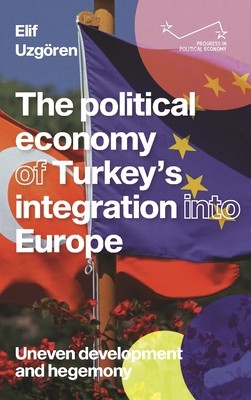
- Išsiųsime per 10–14 d.d.
- Autorius: Elif Uzgören
- Leidėjas: Manchester University Press
- ISBN-10: 1526172534
- ISBN-13: 9781526172532
- Formatas: 15.6 x 23.4 x 1.3 cm, kieti viršeliai
- Kalba: Anglų
- Extra -20 % nuolaida šiai knygai su kodu ENG20
The Political Economy of Turkey's Integration to Europe + nemokamas atvežimas! | knygos.lt
Atsiliepimai
Aprašymas
This book examines Turkey's integration with Europe within structural dynamics of globalisation from a critical political economy perspective. Critical approaches have been sidelined within European Studies. Turkish enlargement is not an exemption. The analyses are based on original data generated by 109 interviews conducted in 2010, 2017 and 2023 with five categories of actors: representatives of capital and labour, political parties, state officials, and struggles around ecology, patriarchy and migration. It argues that the pro-membership was hegemonic in the 2000s which was contested by two rival class strategies, Ha-vet and neo-mercantilism. In the 2010s, pro-membership is no longer hegemonic within rising critical tone of social forces supporting rival class strategies. Unevenness of Turkey's trajectory of integration to Europe is likely to be consolidated through market integration and management of migration through transactional approach.EXTRA 20 % nuolaida
Kupono kodas: ENG20
Akcija baigiasi už 1d.00:10:51
Nuolaidos kodas galioja perkant nuo 10 €. Nuolaidos nesumuojamos.

- Autorius: Elif Uzgören
- Leidėjas: Manchester University Press
- ISBN-10: 1526172534
- ISBN-13: 9781526172532
- Formatas: 15.6 x 23.4 x 1.3 cm, kieti viršeliai
- Kalba: Anglų




Atsiliepimai